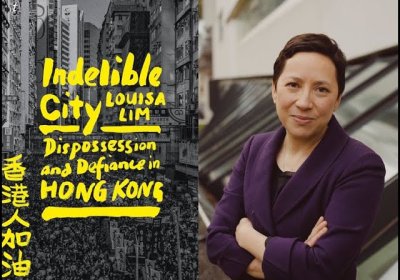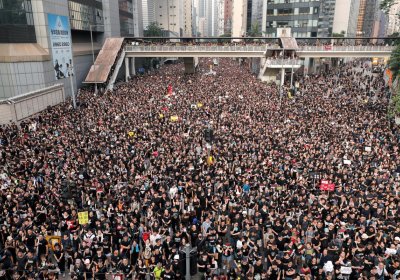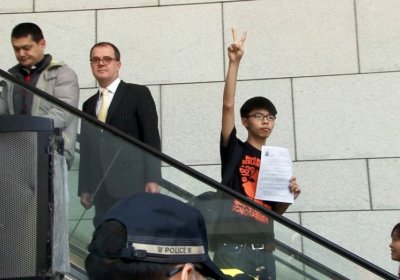Indelible City, writes Alex Salmon, looks at the struggles of the people of Hong Kong to maintain their city’s identity while caught between British colonialism and Stalinist China.
Hong Kong
The tabling of a bill to criminalise disrespect of the Chinese national anthem and looming national security laws ignited street protests in Hong Kong on May 24.
Amid the COVID-19 crisis, Hong Kong's pro-democracy movement and freedom of speech are under attack, writes Wlam*, as the legal system cows under pressure and police brutality worsens.
Protesters set up roadblocks around the Hong Kong Polytechnic University on November 17, initially to prevent the same police attacks as happened at the Chinese University of Hong Kong a week before.
Police attempted to seize control of the main roads and subsequently laid siege to the university, accusing the protesters and students of causing the chaos.
In Hong Kong, students are continuing their campaign for democratic measures, following their successful push to force the Carrie Lam administration to retreat on the unpopular extradition bill.
Hong Kong riot police stormed the Chinese University of Hong Kong (CUHK), one of the prestigious universities in Hong Kong, on November 12, despite making several promises to the university administration that they would not.
Hong Kong riot police stormed the Chinese University of Hong Kong (CUHK), one of the prestigious universities in Hong Kong, on November 12, despite making several promises to the university administration that they would not.
Students are continuing their campaign for democratic measures, following their successful push to force the Carrie Lam administration to retreat on the unpopular extradition bill.
Hong Kong police unleashed a new wave of violence against protesters on November 11, killing one and injuring others. Green Left’s Pip Hinman asked student activist Wlam*, who is currently studying in Australia, about the democracy movement and where things are headed. (*Wlam is a pseudonym to protect his identity.)
Hong Kong's government just withdrew the anti–civil liberties bill that set off huge, rolling protests and convulsed the city for months. But the political crisis is bigger than one measure — and protesters could be emboldened to push for even more, writes Kevin Lin.
Hong Kong’s ongoing protests are a dramatic reminder that mass street demonstrations can defeat seemingly undefeatable legislation.
Last month, the million-strong marches forced the Hong Kong government to shelve its China extradition bill, which critics say would allow Beijing to muzzle dissident voices in the former British colony. Unsatisfied with mere suspension, protesters have demanded the bill’s complete withdrawal and the resignation of Hong Kong’s Beijing-approved chief executive, Carrie Lam.
A joint statement in solidarity with the protests in Hong Kong initiated by the Socialist Party of Malaysia (PSM) has been supported by nearly 60 international organisations and parties.
Green Left Weekly’s Susan Price spoke to Rena Lau, a Hong-Kong based activist, about the protest movement that has erupted there against the proposed extradition bill.
In Joshua: Teenager vs. Superpower, which premiered at the 2017 Sundance Film Festival, director Joe Piscatella depicts Hong Kong pro-democracy activist Joshua Wong and his comrades struggles from 2011-16 against Chinese government attempts to impose control on the former British Colony.
- Page 1
- Next page











